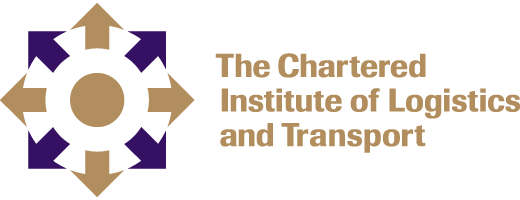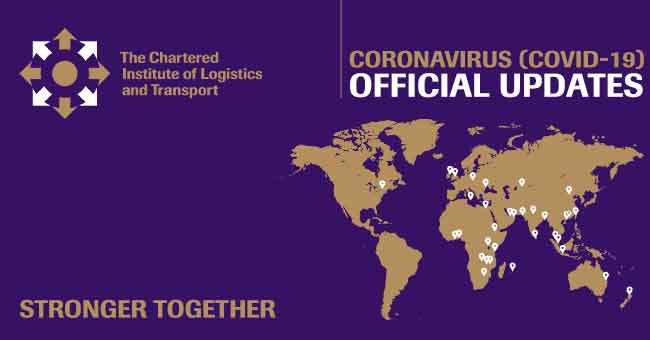Covid-19 found its way into Nigeria on February 27th, 2020. The government in the first instance suspended all international flights into Nigeria, and later domestic commercial flight operations, except those on essential services.
All inter-state travels, using public transport or privately owned vehicles was also suspended. These restraints have caused serious disruption in the national supply chain, almost bringing the social and economic activities of the country to a standstill.
Generally, domestic travel in Nigeria is via road, rail, inland waterways and air, but transportation by road remains the most dominant, accounting for about 90% of the total movements. The road mode is followed by air transport with a marginal share of 7%, while rail and inland waterways account for the rest. Travel by air in Nigeria is relatively safe but not easily affordable by the majority; rail services are irregular and disorganised, with limited operating facilities, while travels through inland waterways for long distances is relatively unavailable, except for a few intra-city ferry services that are in use for a small percentage of workers. The operational deficits of other transport modes within the domestic space continue to contribute substantially in making transportation by road highly dominant in the movement of people across the country.
Nigeria’s current population is 204,968,096 (Worldometer, April 12th, 2020) with a total Registered Vehicles numbering 11.8million units (National Bureau of Statistics –NBS 2017) and a road network of about 195,500km (Infrastructure Concession Regulatory Commission – ICRC 2017). If we express the total population to the number of registered vehicles, we shall have a ratio of 17:1, while the ratio of vehicles to road kilometer is 1:60. This shows a very low density of population to vehicular ownership but a very high density of the vehicles plying the available road network in Nigeria. This ratio of vehicles to the available road network implies that there will concomitantly be high volume of traffic on the roads, which ultimately results in chaotic vehicular traffic situations, contentions amongst users on the roadways, high levels of road infrastructure dilapidation and failures, high rates of traffic disobedience, and frequent accidents of different magnitudes.
Generally, traffic is very slow on urban roads, high-traffic carrying inter-state major roads, and highways. On average, three to five hours could be spent in cities during peak periods, and inter-state travels may have an extra two to six hours added to the normal hours required to cover a distance. The accidents rate is relatively high, though with reduced fatalities. With the advent of Covid-19, and the associated governmental response, this situation has to some extent improved.
The following safety practices are currently in place but adherence has been an issue in some areas:
- International flights have been suspended, followed by suspension of all domestic commercial flights, except those on essential services by the federal government.
- The federal government also shut down all activities in Abuja, the nation’s capital Lagos, and the commercial nerve centre of the country, the adjourning state of Ogun, from March 11th to April 14th, 2020. Majority of the state governments also took the same steps by locking down all non-essentials activities for two weeks to outright four weeks. There is the possibility of extension of the lockdown.
- All inter-state travels either by public or privately owned vehicles are for now barred.
- Only vehicles on essentials services: agricultural products, medicals, markets (two days in a week between 10 and 14 hours), security, etc are allowed to operate.
As already mentioned, the above major interventions by government at federal and state levels have helped to reduce vehicular and human traffic on the highways, intra-city roads and other spatial areas drastically. Furthermore:
- All commercial transport operators have been given guidelines on Covid-19 prevention: how to wash and sanitize their hands with alcohol-based soap, including those of their passengers at the parks before boarding the vehicle. They are expected to sanitize vehicle parks regularly, at least before and after each trip, and refrain from shaking hands.
- All forms of vehicle overcrowding and overloading are prohibited, and social distancing (now called physical distancing) of two meters between passengers inside the vehicle have been imposed, and are monitored for compliance as approved by Nigeria Centre for Disease Control (NCDC). Passengers are empowered to report any driver for violations to the Ministry of Transportation by giving the name of the park, time of take-off and vehicle registration number through 08000CORONA.
- Information from states that are not on lockdown are relatively having the same traffic conditions: congestion, road rage, accidents with a few fatalities, etc.
- No standing in all High Capacity Buses (HCB) belonging to the government, private companies and individuals, and all buses are now to carry 60% of their full capacity with the air conditioning system switched off. All drivers are to adhere to approved speed limits at all times, and carry along with their vehicles a temperature reader to test each passenger before boarding the bus. The driver and conductor are required to wear hand gloves and face protection during transit.
- There is now a national transportation plan by the Ministry of Health in conjunction with NCDC and other relevant organisations to move Covid-19 victims. A high number of ambulances have been acquired by the federal and state governments, including those donated into the transportation national pool by agencies of government, corporate organisations and spirited individuals.
- Seaports remain open, making it necessary for trucks to be at the ports and on major roads. For now, there are escort services provided by a combination of security forces and agencies of government who are charged with the responsibility of road traffic control and management.
- The institutional framework for road safety management and control (Federal Road Safety Corps, Traffic Division of Nigeria Police, states’ Traffic Control and Management Agencies/Authorities, Local Councils, and motor unions and associations) are collaborating to control the few vehicles on the roads while at the same time enforcing compliance of the lockdown imposed by the government.
This is an example of analysis from Nigeria prepared by Francis Ehiguese, IVP Nigeria, which we are sharing as part of our global best practice resource to help you think about and determine appropriate responses locally.

